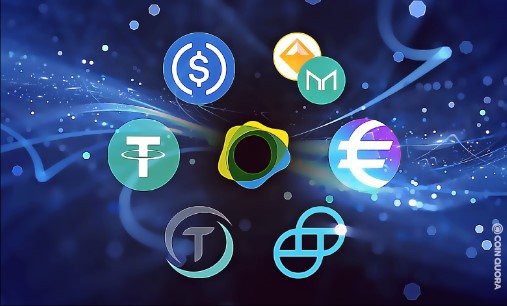The Pan African Digital Initiative Summit and Expo (PADISE 2022) which held recently in Lagos, Nigeria with the theme: “Leveraging Right Policies & Technologies in Taming Insecurity and Cyber-threat” featured inspiring keynote presentations, innovative panel sessions and exhibition by some of the brightest minds in the Tech Government and Security space.
The two days also featured an exhibition by some of the leading ICT companies in Africa.
RELATED: Telecoms blackout imminent – Network operators blame insecurity, fuel scarcity and illegal taxation
There were many actionable and timely insights shared on how to respond to and thrive in a challenging world
Here are the top 14 takeaways from PADISE 2022.
- Today, insecurities affect every country. They hamper efforts to promote and protect human rights and are an obstacle to sustainable development.
- Advances in emerging technologies are moving at a fast rate. Information communications technology (ICT), in particular, over the years, has garnered impetus and has become a nearly indispensable part of human existence impacting how we live, work and play. Other technologies are also quickly finding expression and gaining ground including artificial intelligence (AI), especially in terms of machine learning and robotics; the internet of things (IoT), hyper-connectivity, big data, biotechnology; quantum computing and many more.
- Technology has proven to be a double-edged sword in the fight against insecurity. Technology can help curb solve insecurity. It also precipitates labour force disruptions and creates new risks through vulnerabilities.
- In considering how to leverage the right policies and technologies in taming insecurity and cyber-threats, one word that comes to mind is vulnerabilities. So, the real challenge is in identifying vulnerabilities, whether technology or otherwise and fixing them.
- The increase in ransomware attacks and the large scope of threats show that no organization, no state, no company is immune. The actors have moved from private individuals working alone to large-scale enterprises and some dodgy states.
- A tremendous benefit of the advent of technology is the ease of real-time sharing of news and information. This has led to the rise of fake/manufactured news, so sources must be checked, and news verified before sharing. Not everyone is a criminal. The percentage involved in cybercrime is so small, less than 10 per cent.
- The digital transformation of the economy has led to the creation of new business models, new products and services, and new ways of doing business. This digital economy is growing at a rapid pace and is expected to continue to do so in the coming years. Data is the lifeblood of the digital economy. It’s used to create new products and services, make decisions as regards security, and much more. Digitizing existing methods will help mitigate the impact of insecurity.
- Contrary to popular perception, the security agencies are keeping abreast with developments in the technology space while actively collaborating with relevant stakeholders. For instance, Interpol is in Abuja. The NPF Force HQ has a Technical Intelligence Unit (T.I.U) to combat cybercrime and physical threats to Nigerians and is collaborating with the WEST AFRICAN POLICE INFORMATION SYSTEM (WAPIS) for, among other things, data collation of all nefarious individuals across the West African region. NCC is in constant collaboration with the NPF has been ongoing to rescue kidnapped citizens. The national crime and incidence centre in Lagos regularly leverage ICT. Nigerian Army Cyberwarfare command works with the NPF to assist in curbing cybercrime. Progress is being made. NPF’s social media unit is now fully operational. Rescue me App, has also been launched.
- On the policy side, a lot is currently in play. NIN linking phone lines within the country is a good place to start. Legal frameworks include the Cybercrime act, 2015; ND Protection Regulation; Cybersecurity incidence team and the Internet Code of Practice; Bi-Weekly Cyber incidents report posted periodically on the NCC website; Annual National Cyber Security Awareness Month every October; NCC Collaborations on Cybersecurity. Interagency collaboration is key.
- Cybersecurity is a collective effort that demands a multi-sector approach. Every component of society from the government at the highest level to private individuals has a role to play in achieving secure cyberspace.
- Funds, especially the lack of funds, affect productivity. The security agencies need funding. For effective policing, funding is needed intelligence gathering and the purchase of security equipment and gadgets. One success story in this regard is The Police Trust Fund has been set up.
- Security education IS KEY. Education makes people independent. Furthermore, it increases knowledge, strengthens the mind, and forms character. Moreover, education enables people to put their potential to optimum use. Education is also a type of reform for the human mind. Education is crucial and must go hand-in-hand with communication. It takes the problem at hand, to initiate the solution. True Security can be achieved with effective communication.
- While there is today an avalanche of security issues, smart devices invariably are veritable tools in combating insecurity. Consider, aerial surveillance, recon, wireless networks, RFID chips, data collection centres, wireless sensors, and smart devices/objects, (small as a grain of rice) are technical drivers and enablers of innovation. Potential applications are vast, from ad-hoc emergency systems, and intruder alert systems, to tracking devices.
- At the end of the day, innovation is critical to the success of any policies initiated by the state. The battle against insecurity must be won for progress. To move forward, Nigeria must focus on building resilient infrastructure, revamping existing security architecture, the collaboration between relevant stakeholders, emphasis on training and retraining the security agencies, educating the public and mitigating threats.






























